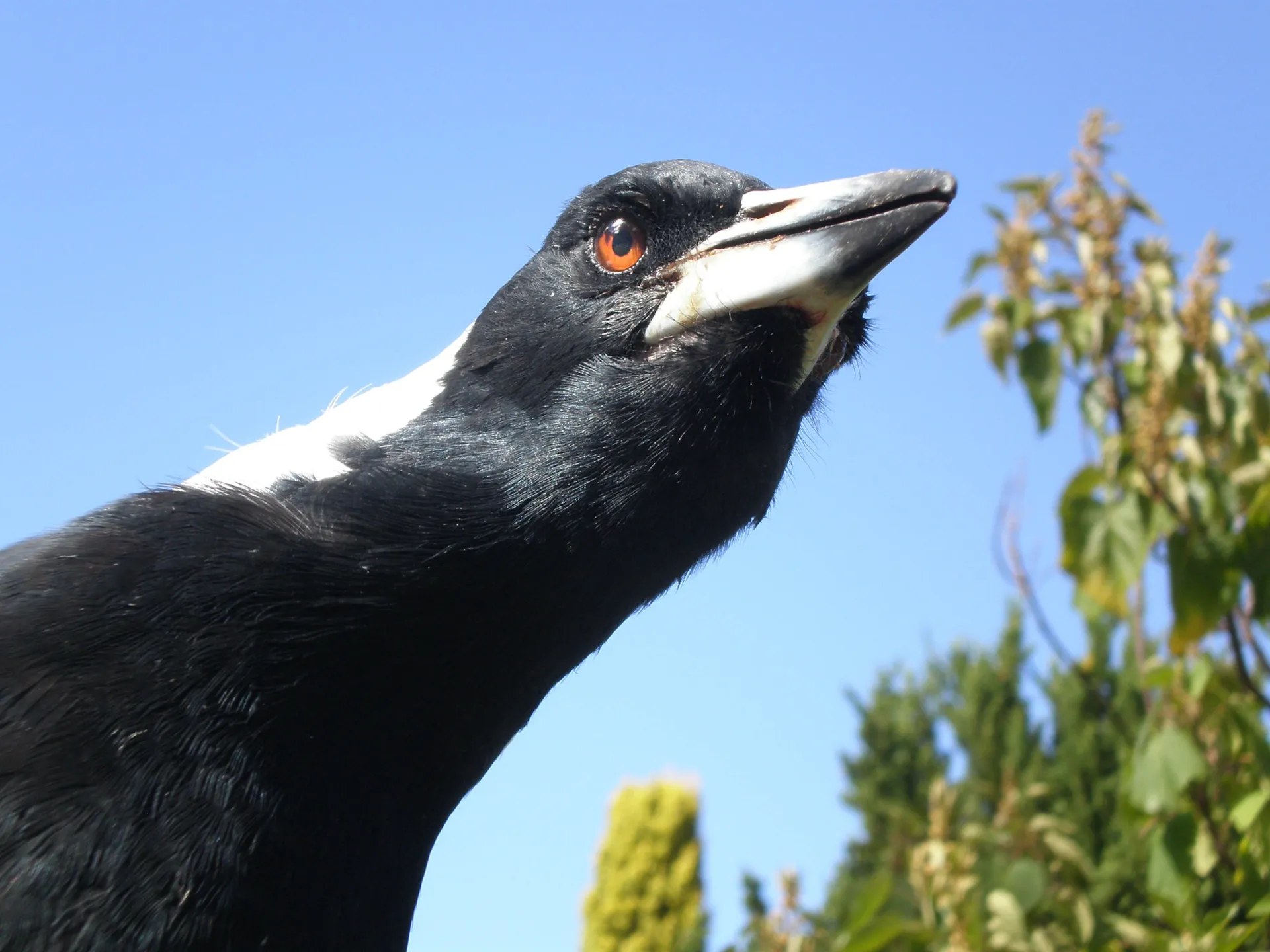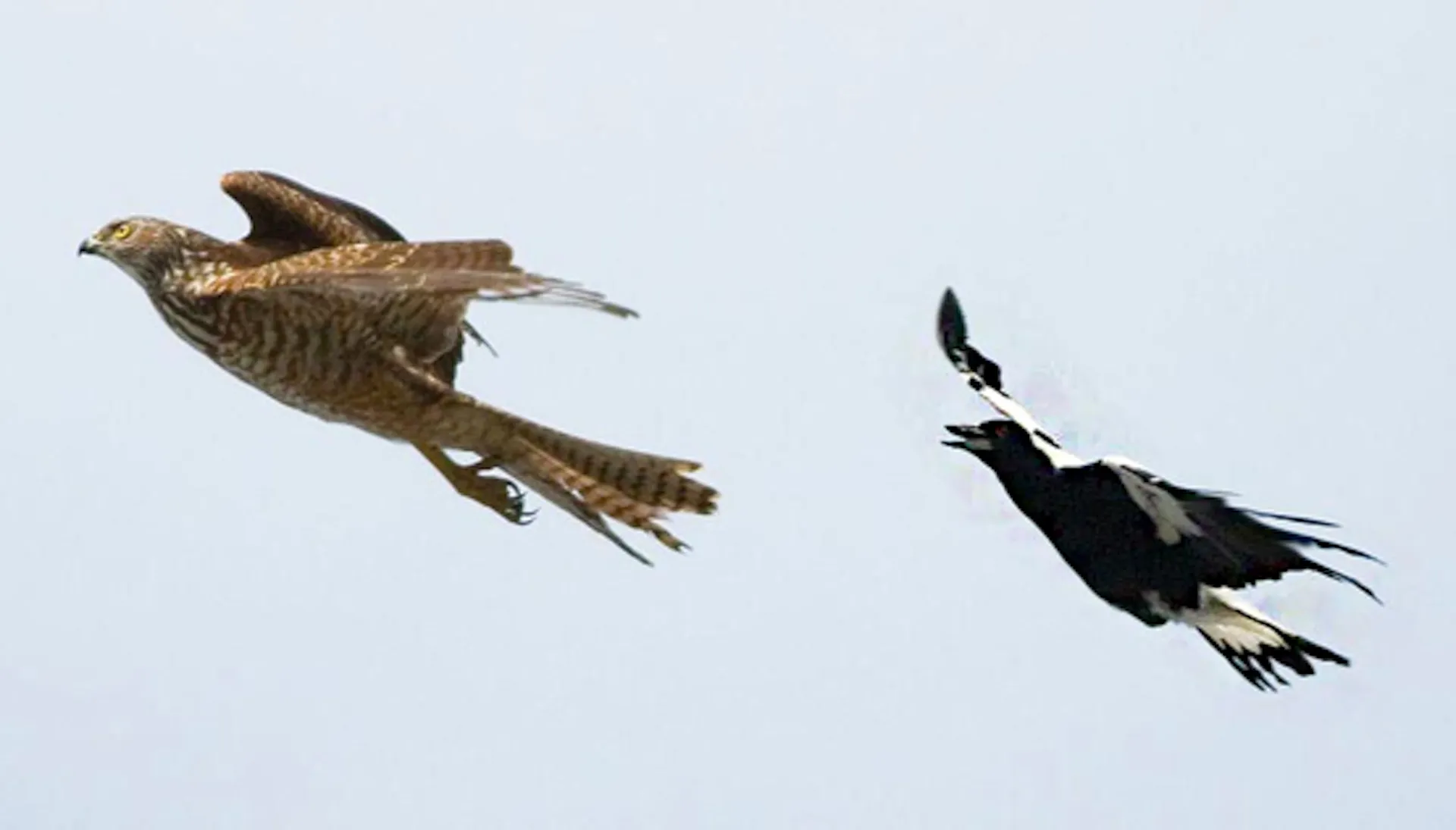Magpies are intelligent birds known for their striking black-and-white plumage and bold personalities. But can you form a genuine friendship with a magpie, especially when adult males are fiercely protecting their nests during the swooping season? The answer is yes—science is increasingly uncovering how cross-species bonds between humans and wild birds like magpies can develop. These relationships go beyond casual feeding, offering insights into animal behavior and cooperative interactions.
In Australia, where magpies thrive, these birds exhibit remarkable social behaviors. Ravens and magpies form strong alliances within their groups, and the country is a global hotspot for avian cooperation. While many birds visit feeders and grow accustomed to humans, true friendship with free-living magpies involves mutual recognition and trust, without reliance on food or shelter. Magpies residing near homes rarely swoop residents—over 80% of breeding pairs nest close to human properties, meaning most people avoid aggressive encounters entirely. These territorial birds, with lifespans of 25-30 years, can build lifelong friendships, even extending trust to humans around their young.
A pivotal factor is magpies’ ability to recognize and remember individual human faces for years. They distinguish safe people from threats, recalling kind interactions or past dangers. This cognitive prowess enables selective bonds.
Why Magpies Seek Human Friendships
Befriending magpies during swooping season starts with understanding their motivations. Prime territories are scarce, and competition is intense—most magpies don’t secure a breeding spot until age five, with only 14% ever raising offspring successfully. Lifetime fledglings average just seven to eleven, per 1970s research by R. Carrick. Each clutch is critical, making alliances valuable.
Friendships manifest distinctly from mere tolerance. Bonded magpies demonstrate trust by introducing chicks, allowing close play, or lingering nearby. Some even participate in human routines—like gardening alongside you or perching at windows to observe daily life.
 The curious magpie following the author’s movements in her home
The curious magpie following the author’s movements in her home
In one striking case, a wild adult female magpie entered a home unprompted, hopped to a desk, watched typing, pecked keys curiously, and inspected the screen. She played with shoelaces, initiating interaction repeatedly. Such proactive affiliation mirrors primate friendship formation, highlighting magpies’ social intelligence. These behaviors underscore why investing in human friendships benefits magpies amid territorial pressures.
Related reading: Bird-brained and brilliant: Australia’s avians are smarter than you think.
Understanding Swooping: A Defensive Strategy, Not Aggression
Swooping raises questions about befriending magpies—how can birds so friendly turn defensive? Swoops, typically by guarding males during a few weeks annually, stem from risk assessment, not rage. Unknown individuals near nests—common in parks—register as intruders threatening the brood.
The process escalates predictably: initial warning dives urge retreat. Ignored warnings prompt closer passes at the head, a desperate measure (contact risks the magpie’s neck). This protects vulnerable females and chicks from perceived harm.
 Fearless magpie in pursuit of larger and dangerous brown goshawk keeping themselves and other species safe
Fearless magpie in pursuit of larger and dangerous brown goshawk keeping themselves and other species safe
To de-escalate, cross roads slowly, letting the magpie study your face from afar for future recognition. Offer mince or detour widely to signal safety—potentially turning a foe into a friend. Avoid umbrellas or fleeing, as these confirm danger, intensifying defense.
Research confirms magpies’ facial memory (e.g., CSIRO studies), supporting calm strategies. Like diplomacy, patience resolves conflicts effectively.
Building and Maintaining Magpie Friendships Safely
Forming bonds requires consistency. Start by respecting territory: observe without intrusion, especially pre-breeding. Regular, non-threatening presence builds familiarity. Avoid sudden moves or eye contact during tense periods.
Experienced observers note magpies reward patience—chicks may approach first, signaling acceptance. Share spaces harmoniously; some magpies “help” with chores, mirroring pack behaviors.
Veterinarians and ornithologists emphasize ethical interactions: never hand-raise wild birds, as it hinders survival skills. Consult local wildlife experts for guidance.
Conclusion: Patience Pays Off in Magpie Bonds
Friendships with magpies, even amid swooping season, thrive on mutual respect and understanding. These birds’ intelligence allows lasting cross-species ties, benefiting both parties in competitive environments. By recognizing faces, assessing risks, and responding to kindness, magpies choose allies wisely.
Implement these tips: stay calm, give space, and build trust gradually. Your patience could foster a remarkable companion. Explore more on avian behavior or consult wildlife organizations for tailored advice.
References
- CSIRO Publishing: Friendships in animals
- Semantic Scholar: Allegiances in ravens and magpies
- Royal Society: Cooperative behaviour in Australian birds
- NCBI: Magpie social sticking
- CSIRO: Lifelong human-magpie friendships
- CSIRO: Magpie facial recognition
